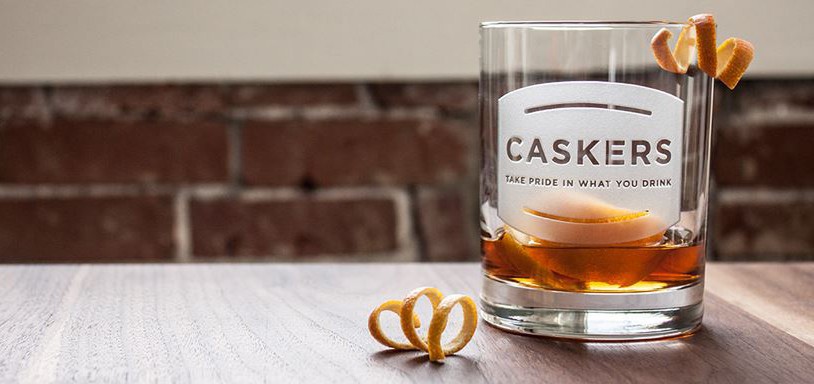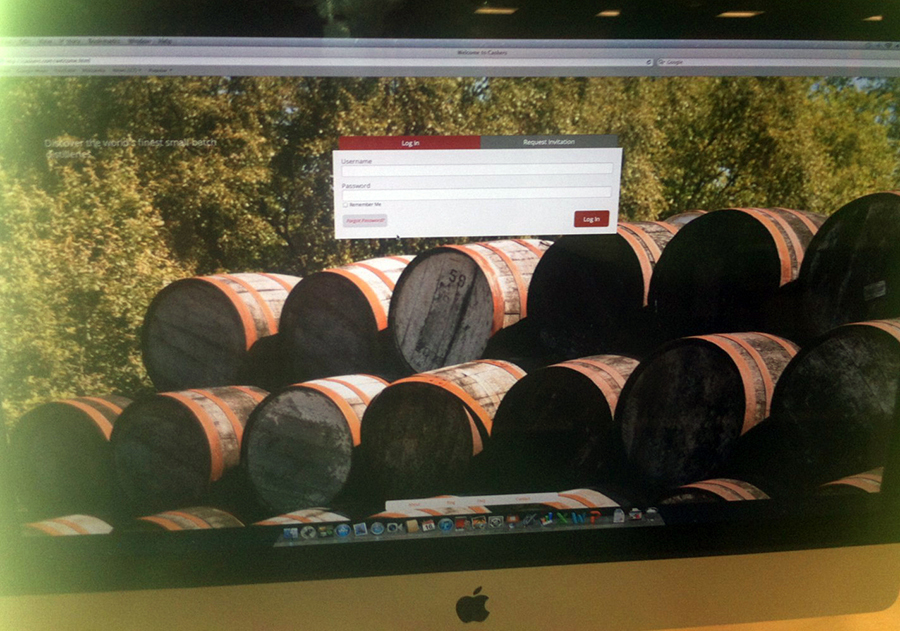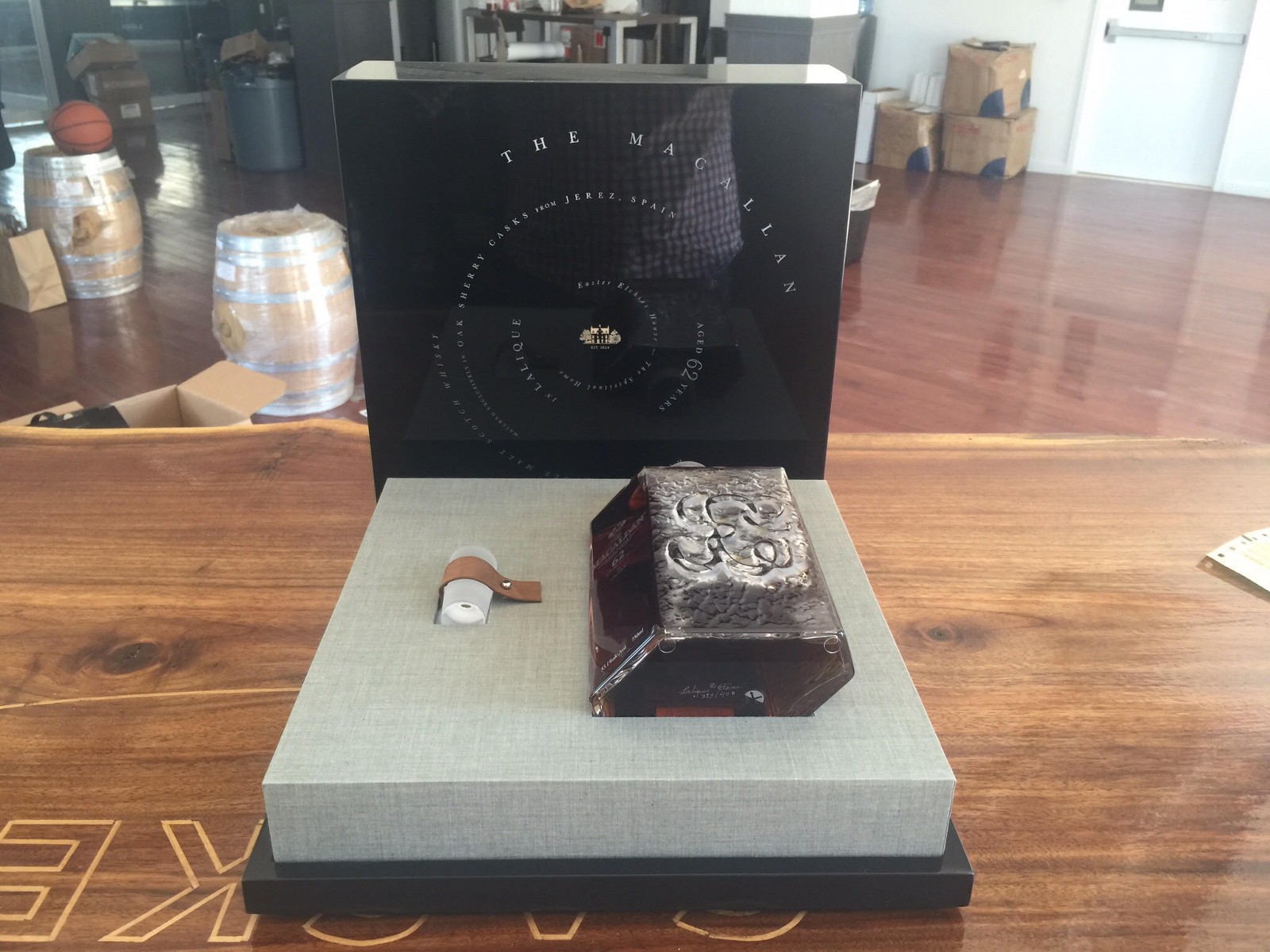Like two guys far from IT, they built their company and saved millions from selling it.

Together with our former classmate from the law university, we started an e-commerce business and successfully sold the company's shares, having earned decent money on this deal. And I want to share with you how we have achieved this.
Instead of the preface
Hair of the Dog is a sport bar that is located on the Lower East Side of Manhattan. As in most sports bars in New York, there are a huge number of televisions, a table for litrobol, and 3.5 stars from the service Yelp. But more importantly, the same Yelp put a “price” tag for that sportbar (the average price of drinks and snacks, including tax and tip, does not exceed $ 10 - note of the translator), which really matters if you are determined to get drunk to three in the morning.
In October 2013, together with our business partner, we negotiated the sale of Caskers , an online liquor store that we founded a year and a half ago. Negotiations stretched for several months, and we were already a few days from the date of the sale of our offspring. If you yourself have experienced a similar situation, then you know that the brain begins to melt and go through all the scenarios in which the transaction can interfere with something. Also, you start thinking about where you could spend millions of dollars, but try not to stay ahead of events.
')
When a week remained before the sale of the company, I could hardly do anything except sit and wait. My team (there were three of us at that time — my co-founder and our first employee) gathered at the office at 9 in the morning and completed all the daily urgent matters for dinner. Then we headed to Hair of the Dog and tried to kill time for a drink before 8 pm - after that hour there were no discounts for drinks. Memories of this week spent in the bar are shrouded in mist, but before that I spent more than a year in a sober mind, focusing on the business that I founded, developed and sold. From this experience I learned five lessons.
Lesson number 1: Be economical
Nowadays, many startups spend money lavishly, but we had a meager budget for Caskers development. We used a business model that does not require inventory (and a lot of office space). The basis of our website has become a free e-commerce plugin for WordPress. We bought the theme for the store for 35 bucks and finished it as we could. We hired a developer in India who helped us create everything that we could not. We had to spend the largest amount at the start on the company's logo, which we chose after three logo design contests, which cost us $ 800. In total, we spent 1200 cu. to create an entire website before launch.
After the launch of the site, we focused on the development of the company in terms of cost savings.
We used Mailchimp for our promotional newsletter. When the number of our subscribers increased to 50 thousand, I signed up for the FoundersCard service for entrepreneurs, which allowed us to get Mailchimp for two months for free (we saved about $ 400).
A few months after the launch of the project, Birchbox For Men agreed to include our $ 10 gift card for our store in its monthly newsletter for subscribers. Gift cards cost us $ 1,800. I managed to convince Birchbox that, in order to promote a brand, we do not want to put our cards in the covers. In fact, I just did not want to spend another 1200 on the covers. Gift cards brought us tens of thousands of dollars in profits.
Three months after the opening of the store, we reached such sales volumes that the potential annual profit at that time was $ 1 million. As soon as we achieved this, I sent an email to the processing center and asked for a reduction in the percentage of processing retail orders. Every time we reach a certain profit, I wrote and asked for a reduction in this percentage. By the time the company was sold, we paid less for processing retail orders than ten-fold firms. And it saved us tens of thousands of dollars annually.
Thorough savings are one of the most important lessons I learned from my work on Caskers. Since we did not spend a lot, we did not have to worry about running out of money. In addition, this allowed us to offer our customers goods at lower prices, as we managed to avoid high costs.
Lesson number 2: Be persistent
When we launched Caskers, we had neither marketing nor advertising budget. Therefore, I knew that we could make the brand recognizable and attract customers only if: a) we make a product that people like and want to share with friends b) the editors of news publications write about us.
I tirelessly invented new techniques for the growth of the company. Here is what I did in a few days:
- I made work with customers my main priority. When a buyer from New Jersey did not receive the package he ordered for the party on time, I rented a car in Zipcar and personally delivered the order to him on Saturday morning. After that, he invited me to one of the shows on Broadway. Seriously. Good service is the most important, especially for a startup, so provide quality service to your customers.
- On the way home, I went to Union Square (New York), a Best Buy home appliance store, and installed the Caskers website on all Apple computers as home pages (poppy owners tend to spend more than other PC users).

This photo was taken 3 years ago at Best Buy on Union Square, New York.
- I turned our business model upside down by asking distilleries to sell our product, instead of Caskers selling their products. When we advertised alcohol, I contacted them and asked them to place this advertisement in social media.
- I was constantly looking for contact with the editors of news portals and stuffed them with the history of our store. We had posts at TechCrunch, Bloomberg, UrbanDaddy and Thrillist. In order to write about us, I did not even have to contact an advertising agency.
- Ultimately, we could generate millions of dollars in revenue without spending a dime on acquiring new customers.
Lesson # 3: Experiment
We focused on developing our business as quickly as possible and immediately experimented with new ideas. If something went wrong, we spent more time on it. If something worked fine, we introduced changes and tried new solutions.
Here are some examples of our experiments:
- A few months later we created Caskers for Offices - a program that allowed startups to subscribe to an individual selection of alcohol for the bar office. These subscriptions have become for us a source of steady income and ultimately helped to get customers in the face of companies that buy gifts for customers and employees.
- We hitched on the site search bar, which allowed buyers to view the bottles of alcohol, previously noted by us on the site, and buy them. The word "bourbon" was hammered into our search string more than 1000 times a day.
- We started to hold events. Since my co-founder and I were lawyers before the launch of Caskers, law firms began to contact us and invite us to arrange private tastings at their offices. It was not large, but it was great, and it helped us earn money when we needed it.
- We launched the Caskers Concierge program, which helped connoisseurs find rare and expensive whiskey bottles. Looking for a 50 year old Macallan or Dalmore 1969? Caskers will help you with this. We were engaged in a similar search earlier, but officially it was not part of our service, and we realized that it would be great to make such a search publicly available. If you are interested, the most expensive bottle of whiskey sold by us cost 30 thousand dollars. In fact, we sold four such bottles.

A bottle of 62-year-old Macallan. One of 400 in the world.
Experimenting with new ideas to promote our company in the market and selling alcohol took a huge amount of time from me. Although without experiments I would not be so interested to work on Caskers. But most importantly, our business would not have grown so fast.
Lesson number 4: Be careful
Ultimately, a startup is the sum of everything you do and things you don’t do. A lot of things we did not do - something for the worse, something for the good.
We never advertised wine, because we wanted to focus on the industry in which very few players (the word “wine” was driven into our search box 12 times in the last 30 days).
We hired workers slowly and carefully. And, most likely, as a result, they missed candidates who could become class members.
We never received capital from outside until the sale of our company. At the very beginning we had several meetings with investors, and we had no idea what we were doing. When we received a call from RRE, a company that specializes in venture capital investments, and were offered to meet at the Caskers office, we were asked to meet at the RRE office, since our company was still based in my studio apartment. When we met with several angels in our territory (we finally got an office), I brought water bottles from the house and arranged them in the conference room to look as if we were a serious organization.
Despite several proposals, my co-founder and I came to the decision that we did not want any investments from outside. By that time, our business was already generating income and growing rapidly, but we also understood that the company is still young and unstable. We experimented a lot and didn’t want that the samples of something new and the growth of the company were hindered by outsiders who did not understand our business. We did not think that we would be able to find suitable investors until we met a team that eventually acquired our business.
The founders of startups make vital decisions for their company that can both serve the prosperity of a business or lead to its collapse. And this is in conditions of limited information, scarce resources and under enormous pressure. It is important to make decisions quickly, but to hack in a hurry is a big mistake.
Lesson 5: Be Decisive
One of the most difficult trials for me as a company founder was ignoring the noise created by other startups. While other firms received rounds of financing with apparent ease, it was not easy to accept, and even harder to be proud of the fact that my company did not receive a penny from investors, and we had no employees (except me and the second co-founder) for a long time period Looking back in the past, today I can be proud of how we did the work at the lowest possible cost, but at that moment it seemed to us that we were losing.
Each startup is unique, and the best way to create a successful company is to rely on your strengths and overcome your weaknesses. I discovered that the success of other startups does not exert pressure on me - I learned to be decisive in order to build my own company - a company that I have long wanted to create.
From the point of view of all that I learned and experienced, from the point of view of the friendships that I found, the creation, development and sale of Caskers became the most wonderful experience in my life. Presently.
About the author: Moiz Ali is the co-founder and CEO of the Caskers project. Now - the founder and CEO of Native .
Source: https://habr.com/ru/post/294708/
All Articles